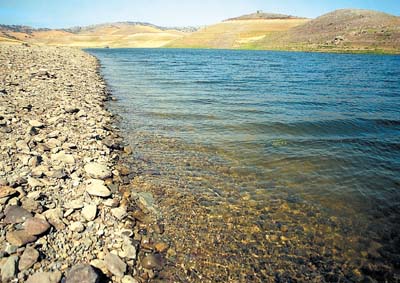Whether the water legislation approved at the Capitol on
Wednesday actually helps the ailing Sacramento-San Joaquin Delta
depends on who’s reading the law and how much faith they have in
government.
By Matt Weiser, McClatchy News Service
Whether the water legislation approved at the Capitol on Wednesday actually helps the ailing Sacramento-San Joaquin Delta depends on who’s reading the law and how much faith they have in government.
After years of environmental decline in the Delta, new state laws finally give environmental restoration an equal footing with the enormous thirst of cities and farms.
“That’s a remarkable change,” said Phil Isenberg, chairman of the Delta Vision Blue Ribbon Task Force, whose work became an important guide for lawmakers. “It has the ability to get past decades of treating the ecosystem as a secondary value that should be ignored.”
The water deal approved Wednesday creates an appointed Delta Stewardship Council, which must prepare a “Delta Plan” by Jan. 1, 2012.
That plan must describe how ecosystem restoration and reliability of water delivery will be achieved.
It also has power to withhold funding for some environmental projects associated with a controversial water diversion canal if it’s determined that the canal won’t help restore wildlife. This is a higher standard than similar federal rules, which only require protection of wildlife.
If the canal project meets this higher standard, it automatically must become part of the Delta Plan; the stewardship council can’t reject it. The council can, however, reject other state projects that don’t satisfy the Delta Plan.
The council also will be charged with protecting the Delta’s cultural heritage and farm economy, as well as ensuring that spending on flood protection and habitat are done effectively.
Governed by state public-records and open-meeting laws, the council will become an important new forum for Delta residents and others to monitor huge changes coming their way, including the massive water diversion canal.
None of this is enough, though, for some key Delta interests.
Lois Wolk, D-Davis, who represents a large swath of the Delta, voted against all the water bills.
Among her reasons, she said, it won’t be the stewardship council that ultimately decides if a canal project meets the “restoration” standard. That will be left to the director of California’s Department of Fish and Game, who’s appointed by the governor.
“It’s a very weak council,” Wolk said. “The whole point of the stewardship council was to vest it with some energy and power to be able to direct these (state) agencies – to be a true steward of the Delta. It’s become a shadow of that.”
The governor and the Department of Water Resources already have asserted their power to build a canal under existing law.
The new laws neither approve nor prevent the project. But the bill language does forbid the Department of Water Resources from starting construction until it obtains a new water diversion permit from the State Water Resources Control Board.
Before the board can do that, it has nine months from the date the law takes effect to establish “flow criteria” for Delta waterways. This process would set minimum flows to sustain Delta habitat.
The state has never attempted to determine these minimum environmental flows. The very idea has been controversial among water users, because it may result in having less water left over to divert to cities and farms.
The term “flow criteria” is relatively new in water law. The result would not be binding on any water agencies, said Cynthia Koehler, senior attorney at Environmental Defense Fund, who negotiated the flow language as part of the bill.
Koehler said the flow criteria nevertheless would become vital data that could affect the state water board’s decision on the canal.
“This is something that has weight and cannot simply be brushed aside,” said Koehler. “What we wanted was an up-front public trust declaration: What does the environment need so we can get out of this endless cycle of conflict.”
Declaring flow criteria could pressure the state water board to restrict water diversions allowed by a new canal and also to boost the amount of water that must be allowed to run free through the Delta once a canal is built.
Wolk said there’s no reason to believe the state water board will heed the flow criteria, noting that those board members also are appointed by the governor.
What’s needed, she said, is legislation requiring water quality standards for the Delta that have the force of law. This would require a more complicated procedure akin to the legal reforms that restored flows to Mono Lake in the eastern Sierra.
“Without water, you won’t have a Delta, you won’t have fish, you won’t have agriculture,” Wolk said. “You won’t have a vibrant, living estuary. Water is the key.”










